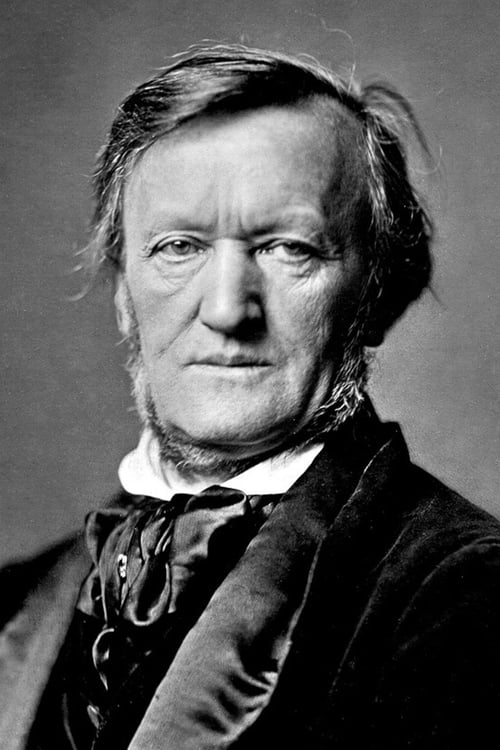
Lyricist
When a precious hoard of gold is stolen from the river Rhine, it unleashes a chain of destructive events, pitting gods and mortals against one another for generations. Wagner’s Ring cycle boasts some of the greatest music ever written for the opera stage. Join us as we embark on a spectacular journey into the world of myth, dream and memory, with the figure of Erda – Mother Earth herself – at its centre.

Music
When a precious hoard of gold is stolen from the river Rhine, it unleashes a chain of destructive events, pitting gods and mortals against one another for generations. Wagner’s Ring cycle boasts some of the greatest music ever written for the opera stage. Join us as we embark on a spectacular journey into the world of myth, dream and memory, with the figure of Erda – Mother Earth herself – at its centre.

Writer
When a precious hoard of gold is stolen from the river Rhine, it unleashes a chain of destructive events, pitting gods and mortals against one another for generations. Wagner’s Ring cycle boasts some of the greatest music ever written for the opera stage. Join us as we embark on a spectacular journey into the world of myth, dream and memory, with the figure of Erda – Mother Earth herself – at its centre.
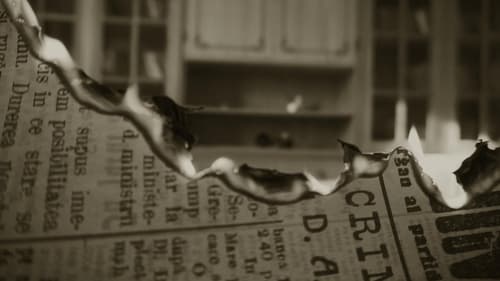
Compositor
During the anti-communist uprisings of the late 1950s, a writer of comedic poems against socialism was constantly pursued by Securitate troops.

Music
The documentary dives intimately behind the scenes of the Finnish National Opera and sucks the viewer in like the best of thrillers. The three hours fly by, even for those who aren’t necessarily interested in opera as an art form.

Music

Writer
Los caballeros del Grial están en horas bajas: cada vez hay más deserciones hacia el reino del malvado Klingsor. Convertido en un enemigo implacable, el brujo manipuló a Amfortas para arrebatarle la lanza sagrada y provocarle la herida fatal que lo ha sumido en la agonía. Solamente un inocente, "un tonto sin remedio", puede sanar al guardián del cáliz y revertir lo ocurrido. El encarcelamiento seguido del arresto domiciliario del director ruso Kirill Serebrennikov se convirtió en 2017 en un asunto político internacional. Serebrennikov, también a cargo del decorado y vestuario de esta nueva producción de la obra wagneriana, cuenta la historia desde la perspectiva de un Parsifal más maduro. A través de una secuencia retrospectiva, el espectador recorre los dos primeros actos hasta llegar a un tercero en el que se sitúa el presente de la narración.
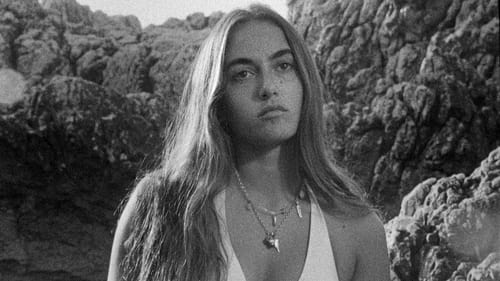
Music
Joey trabaja sirviendo copas a una comunidad de hedonistas en un pequeño paraíso mediterráneo. Queda ambiguo si el comportamiento excesivo de este grupo es debido al hecho de que el verano llega a su fin, o simplemente el fin de sus veranos.

Music
In “Spaces #3”, 7 internationally acclaimed directors shot, after commissioning by the Thessaloniki International Film Festival, a short film at home, making their own timely comment on the new reality that we live in. The project is inspired by the book “Species of Spaces” by the French novelist, filmmaker, documentalist, and essayist, Georges Perec and the days of quarantine. The idea is to create a film at home, using the environment, the people or the animals in that space. The only outdoor areas that may be used are outdoor living spaces, such as the terrace, the garden, the balcony and the stairwell. “The Infinite Confinement” is Victor Moreno’s submission.

Music
François Girard, whose revelatory 2013 take on Parsifal set the recent Met standard for Wagner stagings, now unveils a spellbinding new vision of the composer's tale of a cursed sea captain doomed to sail the open ocean for eternity. With sweeping sets by John Macfarlane, Girard’s new production turns the Met stage into a rich, layered tableau reminiscent of a vast oil painting. Valery Gergiev conducts a brilliant cast led by bass-baritone Evgeny Nikitin as the Dutchman, with German soprano Anja Kampe making her anticipated Met debut as the devoted Senta, whose selfless love is what the Dutchman seeks. Bass Franz-Josef Selig is her father, Daland, and tenor Sergey Skorokhodov is her deserted former lover, Erik. This live cinema transmission is part of the Met’s award-winning Live in HD series, bringing opera to more than 2,200 theaters in more than 70 countries worldwide.

Lyricist
François Girard, whose revelatory 2013 take on Parsifal set the recent Met standard for Wagner stagings, now unveils a spellbinding new vision of the composer's tale of a cursed sea captain doomed to sail the open ocean for eternity. With sweeping sets by John Macfarlane, Girard’s new production turns the Met stage into a rich, layered tableau reminiscent of a vast oil painting. Valery Gergiev conducts a brilliant cast led by bass-baritone Evgeny Nikitin as the Dutchman, with German soprano Anja Kampe making her anticipated Met debut as the devoted Senta, whose selfless love is what the Dutchman seeks. Bass Franz-Josef Selig is her father, Daland, and tenor Sergey Skorokhodov is her deserted former lover, Erik. This live cinema transmission is part of the Met’s award-winning Live in HD series, bringing opera to more than 2,200 theaters in more than 70 countries worldwide.

Writer
Motivated by the love that bound him to Mathilda Wesendonck, Richard Wagner’s composition of Tristan und Isolde goes far beyond any simple operatic gesture. Peter Sellars’ production pours oil onto this troubled sea of emotions in an almost dematerialised setting bared of all earthly contingencies whilst Bill Viola presents the lovers’ initiatory quest for nirvana in videos detached from the stage, suspended like altarpieces.

Original Music Composer
Motivated by the love that bound him to Mathilda Wesendonck, Richard Wagner’s composition of Tristan und Isolde goes far beyond any simple operatic gesture. Peter Sellars’ production pours oil onto this troubled sea of emotions in an almost dematerialised setting bared of all earthly contingencies whilst Bill Viola presents the lovers’ initiatory quest for nirvana in videos detached from the stage, suspended like altarpieces.

Original Music Composer
A short film based on the short story "De Binocle" by Dutch writer Louis Couperus. It tells the story of a nervous man who on one evening while going to the opera becomes the victim of his own obsessive thoughts.
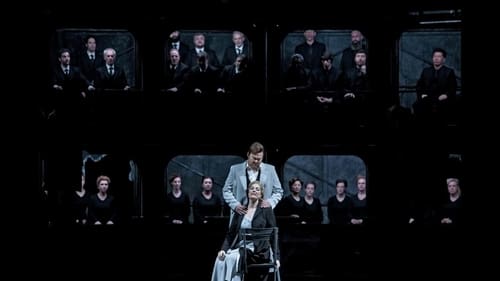
Original Music Composer
‘In reality, this Lohengrin is an entirely new phenomenon for the modern consciousness!’ Richard Wagner himself understood the innovative character of his sixth piece of music theatre, completed in 1848, the year of revolutions. Although it is reckoned among his ‘romantic operas’, his new vision of musical drama is already clearly heralded in this work. In his hands, the mediaeval saga of the Knight of the Swan becomes a meditation on the true love that asks no questions. Alain Altinoglu, our Music Director, who has already conducted this work in Bayreuth, guarantees the quality of the music, while the director Olivier Py, known at La Monnaie for his brilliant productions of Les Huguenots and Hamlet, can be relied on not to downplay Wagner’s revolutionary political side. Wagner’s own opinion was that ‘one can only understand Lohengrin if one can liberate oneself from any modern-looking, generalising form of representation so as to see the phenomena of real life’. A challenge to us all?

Writer
Spectacular! Opera in three acts. Filmed at a series of outstanding performances at the Teatro Real de Madrid in December 2016, this recording will especially delight lovers of Wagnerian music drama with its faithful reflection of the grandiose staging of Alex Olle, a member of La Fura dels Baus, whose earlier productions have attracted widespread attention. A conductor equally at home in Monteverdi, Boulez, Praetorius and Schumann, Pablo Heras-Casado can rely on a cast totally committed to this breathtaking musical hurricane!

Music
Spectacular! Opera in three acts. Filmed at a series of outstanding performances at the Teatro Real de Madrid in December 2016, this recording will especially delight lovers of Wagnerian music drama with its faithful reflection of the grandiose staging of Alex Olle, a member of La Fura dels Baus, whose earlier productions have attracted widespread attention. A conductor equally at home in Monteverdi, Boulez, Praetorius and Schumann, Pablo Heras-Casado can rely on a cast totally committed to this breathtaking musical hurricane!

Music
In this documentary, award-winning filmmaker Susan Froemke explores the creation of the Metropolitan Opera’s storied home of the last five decades. Drawing on rarely seen archival footage, stills, and recent interviews, The Opera House looks at an important period of the Met’s history and delves into some of the untold stories of the artists, architects, and politicians who shaped the cultural life of New York City in the ’50s and ’60s. Among the notable figures in the film are famed soprano Leontyne Price, who opened the new Met in 1966 in Samuel Barber’s Antony and Cleopatra; Rudolf Bing, the Met’s imperious General Manager who engineered the move from the old house to the new one; Robert Moses, the unstoppable city planner who bulldozed an entire neighborhood to make room for Lincoln Center; and Wallace Harrison, whose quest for architectural glory was never fully realized.

Original Music Composer
En abril de 2017, un gran ojo brilló sobre el escenario del Festival de Pascua de Salzburgo. Formaba parte de la reconstrucción de la ópera de Wagner "Die Walküre", que Herbert von Karajan había desarrollado él mismo para Salzburgo 50 años antes. Con motivo del aniversario de esta actuación legendaria, la élite de Wagner de nuestro tiempo se reunió para recrear la visión del teatro musical de Karajan de 1967 bajo la dirección de Christian Thielemann. Contigo. a. Georg Zeppenfeld, Anja Harteros, Peter Seiffert, Anja Kampe y Vitalij Kowaljow no dejaron nada que desear en términos de voz, y Christian Thielemann es el director que generalmente se dice que se acerca más al antiguo concepto de sonido de Karajan en la actualidad.

Music
When a virginal girl follows her lover into a mysterious forest, a twist of fate wrenches them apart forever. The girl struggles to be ever closer to him in this fairytale about sex, death, and pie.
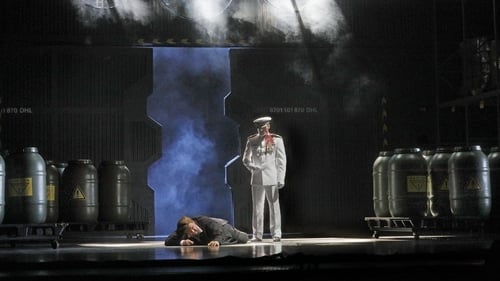
Original Story
Met audiences were fascinated by Mariusz Treliński’s gripping, visionary production of Wagner’s epic opera. In the daunting title roles of the doomed lovers, Nina Stemme and Stuart Skelton are passionate, overwhelming, and heartbreaking as they battle every obstacle that separates them from their true destiny. René Pape is King Marke, betrayed not only by Isolde but by Tristan, the man he most trusts and loves like a son. With Ekaterina Gubanova as Isolde’s confidante Brangäne and Evgeny Nikitin as Kurwenal, Tristan’s loyal lieutenant. Simon Rattle conducts a surging, shimmering account of Wagner’s monumental score.

Original Music Composer
Met audiences were fascinated by Mariusz Treliński’s gripping, visionary production of Wagner’s epic opera. In the daunting title roles of the doomed lovers, Nina Stemme and Stuart Skelton are passionate, overwhelming, and heartbreaking as they battle every obstacle that separates them from their true destiny. René Pape is King Marke, betrayed not only by Isolde but by Tristan, the man he most trusts and loves like a son. With Ekaterina Gubanova as Isolde’s confidante Brangäne and Evgeny Nikitin as Kurwenal, Tristan’s loyal lieutenant. Simon Rattle conducts a surging, shimmering account of Wagner’s monumental score.

Music
Frank Castorf’s staging of the Ring, premiered in 2013 and filmed in 2016, provoked controversy right from the beginning. For Castorf, the Rheingold of our days is oil; thus he places the first part of the tetralogy at a gas station on Route 66. Die Walküre is situated in Baku, Azerbaijan, which was seized by the Bolsheviks in 1920 for its oil, whereas Siegfried takes place in a socialist equivalent of Mount Rushmore and at Berlin’s Alexanderplatz. Götterdämmerung is set somewhere in the GDR, ending up at New York’s stock exchange. Whilst Castorf’s staging polarized, Marek Janowski’s musical reading was unanimously praised, as was the excellent cast including in this opera Iain Paterson (Wotan), Nadine Weissmann (Erda), Albert Dohmen (Alberich) and Roberto Saccà (Loge).

Writer
Frank Castorf’s staging of the Ring, premiered in 2013 and filmed in 2016, provoked controversy right from the beginning. For Castorf, the Rheingold of our days is oil; thus he places the first part of the tetralogy at a gas station on Route 66. Die Walküre is situated in Baku, Azerbaijan, which was seized by the Bolsheviks in 1920 for its oil, whereas Siegfried takes place in a socialist equivalent of Mount Rushmore and at Berlin’s Alexanderplatz. Götterdämmerung is set somewhere in the GDR, ending up at New York’s stock exchange. Whilst Castorf’s staging polarized, Marek Janowski’s musical reading was unanimously praised, as was the excellent cast including in this opera Iain Paterson (Wotan), Nadine Weissmann (Erda), Albert Dohmen (Alberich) and Roberto Saccà (Loge).

Music
Frank Castorf’s staging of the Ring, premiered in 2013 and filmed in 2016, provoked controversy right from the beginning. For Castorf, the Rheingold of our days is oil; thus he places the first part of the tetralogy at a gas station on Route 66. Die Walküre is situated in Baku, Azerbaijan, which was seized by the Bolsheviks in 1920 for its oil, whereas Siegfried takes place in a socialist equivalent of Mount Rushmore and at Berlin’s Alexanderplatz. Götterdämmerung is set somewhere in the GDR, ending up at New York’s stock exchange. Whilst Castorf’s staging polarized, Marek Janowski’s musical reading was unanimously praised, as was the excellent cast including in this opera Iain Paterson (Wotan), Nadine Weissmann (Erda), Albert Dohmen (Alberich) and Roberto Saccà (Loge).

Writer
Frank Castorf’s staging of the Ring, premiered in 2013 and filmed in 2016, provoked controversy right from the beginning. For Castorf, the Rheingold of our days is oil; thus he places the first part of the tetralogy at a gas station on Route 66. Die Walküre is situated in Baku, Azerbaijan, which was seized by the Bolsheviks in 1920 for its oil, whereas Siegfried takes place in a socialist equivalent of Mount Rushmore and at Berlin’s Alexanderplatz. Götterdämmerung is set somewhere in the GDR, ending up at New York’s stock exchange. Whilst Castorf’s staging polarized, Marek Janowski’s musical reading was unanimously praised, as was the excellent cast including in this opera Iain Paterson (Wotan), Nadine Weissmann (Erda), Albert Dohmen (Alberich) and Roberto Saccà (Loge).

Music
Frank Castorf’s staging of the Ring, premiered in 2013 and filmed in 2016, provoked controversy right from the beginning. For Castorf, the Rheingold of our days is oil; thus he places the first part of the tetralogy at a gas station on Route 66. Die Walküre is situated in Baku, Azerbaijan, which was seized by the Bolsheviks in 1920 for its oil, whereas Siegfried takes place in a socialist equivalent of Mount Rushmore and at Berlin’s Alexanderplatz. Götterdämmerung is set somewhere in the GDR, ending up at New York’s stock exchange. Whilst Castorf’s staging polarized, Marek Janowski’s musical reading was unanimously praised, as was the excellent cast including in this opera Iain Paterson (Wotan), Nadine Weissmann (Erda), Albert Dohmen (Alberich) and Roberto Saccà (Loge)

Writer
Frank Castorf’s staging of the Ring, premiered in 2013 and filmed in 2016, provoked controversy right from the beginning. For Castorf, the Rheingold of our days is oil; thus he places the first part of the tetralogy at a gas station on Route 66. Die Walküre is situated in Baku, Azerbaijan, which was seized by the Bolsheviks in 1920 for its oil, whereas Siegfried takes place in a socialist equivalent of Mount Rushmore and at Berlin’s Alexanderplatz. Götterdämmerung is set somewhere in the GDR, ending up at New York’s stock exchange. Whilst Castorf’s staging polarized, Marek Janowski’s musical reading was unanimously praised, as was the excellent cast including in this opera Iain Paterson (Wotan), Nadine Weissmann (Erda), Albert Dohmen (Alberich) and Roberto Saccà (Loge)

Writer
Frank Castorf’s staging of the Ring, premiered in 2013 and filmed in 2016, provoked controversy right from the beginning. For Castorf, the Rheingold of our days is oil; thus he places the first part of the tetralogy at a gas station on Route 66. Die Walküre is situated in Baku, Azerbaijan, which was seized by the Bolsheviks in 1920 for its oil, whereas Siegfried takes place in a socialist equivalent of Mount Rushmore and at Berlin’s Alexanderplatz. Götterdämmerung is set somewhere in the GDR, ending up at New York’s stock exchange. Whilst Castorf’s staging polarized, Marek Janowski’s musical reading was unanimously praised, as was the excellent cast including in this opera Iain Paterson (Wotan), Nadine Weissmann (Erda), Albert Dohmen (Alberich) and Roberto Saccà (Loge).

Music
RICHARD WAGNER - Tristan und Isolde - Bayreuther Festspiele Stephen Gould, Evelyn Herlitzius, Georg Zeppenfeld, Iain Paterson, Christa Mayer Bayreuth Festival Orchestra, Christian Thielemann Staged by Katharina Wagner

Writer
RICHARD WAGNER - Tristan und Isolde - Bayreuther Festspiele Stephen Gould, Evelyn Herlitzius, Georg Zeppenfeld, Iain Paterson, Christa Mayer Bayreuth Festival Orchestra, Christian Thielemann Staged by Katharina Wagner
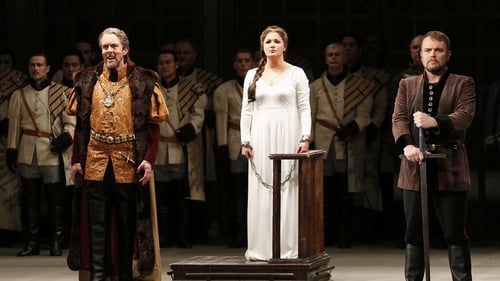
Original Music Composer
A dream came true at Dresden's Semperoper in May 2016 when opera superstars Piotr Beczala and Anna Netrebko made their Wagner debuts as Lohengrin and Elsa, inspired to take on their new roles by Christian Thielmann, the Dresden Staatskapelle's principal conductor and one of the leading Wagner conductors of our day. Die Welt described the performance captured here as "musically one of the finest Lohengrins of all time". Contributing to the triumph are Evelyn Herlitzius's Ortrud. Tomasz Konieczny's Telramund, Georg Zeppenfeld's King Henry and the Dresden State Opera Chorus.
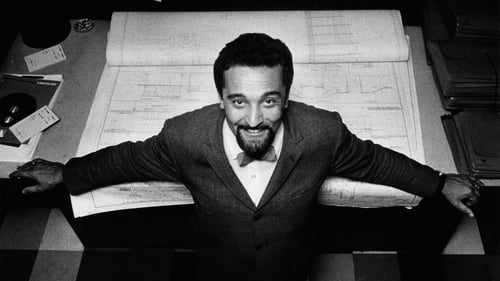
Music
Película documental que rinde homenaje a Roger D'Astous, uno de los arquitectos canadienses más influyentes del siglo XX.

Writer
This Wagner opera is rarely performed because of the scandals that engulfed the Magdeburg Theatre when it was performed in 1836 under the title The Novice of Palermo, and became known as a cursed opera from which the composer had to distance himself. Wagner's adaptation of the story reflects the rebellious mood of a Revolutionary Germany, vindicating sensual love and attack the fanatical repression of sexuality by a puritanical and hypocritical authority. As the prose says, "Shame to him whose cruel striking/Kills for faults of his own liking!". One of the most extraordinary musicals based on a text by Shakespeare, especially worthy of a new performance as it is four hundred years since the death of the Bard.

Original Music Composer
This Wagner opera is rarely performed because of the scandals that engulfed the Magdeburg Theatre when it was performed in 1836 under the title The Novice of Palermo, and became known as a cursed opera from which the composer had to distance himself. Wagner's adaptation of the story reflects the rebellious mood of a Revolutionary Germany, vindicating sensual love and attack the fanatical repression of sexuality by a puritanical and hypocritical authority. As the prose says, "Shame to him whose cruel striking/Kills for faults of his own liking!". One of the most extraordinary musicals based on a text by Shakespeare, especially worthy of a new performance as it is four hundred years since the death of the Bard.

Music
The Brothers Karamazov novel is the epitome of Fyodor Dostoevsky’s creative work, the acme of the philosophic investigation carried out by this colossal and restless mind throughout his life. World renowned choreographer Boris Eifman offers a remarkable vision of the core ideas within the novel, expanding upon them though body language as a way of exploring the origins of the moral devastation of the Karamazovs; creating through choreographic art an equivalent of what Dostoyevsky investigated so masterfully in his book, the excruciating burden of destructive passions and evil heredity. This ballet production is also known and performed as Beyond Sin.

Original Music Composer
Christian Thielemann dirige la Orquesta del Festival Bayreuth en esta producción de la ópera de Wagner grabada en 2015. Protagonizada por Stephen Gould como Tristán y Evelyn Herlitzius como Isolda, el elenco también incluye a Georg Zeppenfeld, Iain Paterson, Raimund Nolte y Christa Mayer.
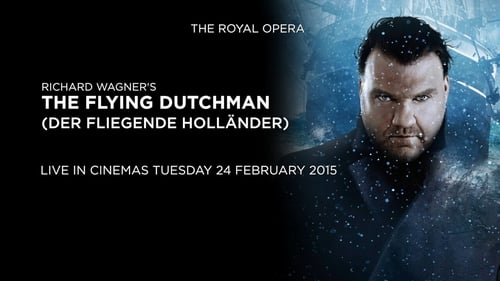
Writer
Tim Albery's Olivier-nominated production for The Royal Opera delves deep into the psychology of Wagner's cursed wanderer and his beloved Senta, detailing the monomania and uncompromising idealism that finally drives them apart. Michael Levine's elemental single set is dominated by a rolling metal hull that represents the Dutchman's phantom ship, the poverty of Senta's home and the treacherous sea.

Writer
Wagner's tale of the struggle between spiritual and profane love, and of redemption through love, is given a radical visual update in Sebastian Baumgarten's controversial yet thought-provoking Bayreuth production. Joep van Lieshout's giant installation 'The Technocrat'; dominates the stage, its industrial interior giving credence to the idea that Tannhäuser is one big experiment and playing host to some magnificent performances, among them Torsten Kerl's robust interpretation of the title role and Camilla Nylund's wonderfully empathetic Elisabeth. Recorded live at the Bayreuth Festspiele, August 2014.

Original Music Composer

Original Music Composer
Götterdämmerung, the final instalment of Wagner’s Ring of the Nibelung, is a story of human passions. Two essentially benevolent creatures, involved with and possibly doomed by their traffic with the gods, find treachery and evil in the world of the humans, and are ruined by the dark side of humanity. Iréne Theorin, acclaimed worldwide for her portrayal of Wagner’s heroines, stars as Brünnhilde opposite Lance Ryan, who continues his radiant portrayal of the tragic hero Siegfried. The strong cast also includes Mikhail Petrenko as the dark antagonist Hagen and Johannes Martin Kränzle, who once again shines as his father Alberich. Waltraud Meier has a memorable appearance as Brünnhilde’s sister Waltraute. With this 2013 recording of Götterdämmerung, the musically and visually compelling Scala Ring Cycle by Daniel Barenboim and Guy Cassiers was completed and proved to be one of the highlights of the Richard Wagner bicentenary.

Writer
Götterdämmerung, the final instalment of Wagner’s Ring of the Nibelung, is a story of human passions. Two essentially benevolent creatures, involved with and possibly doomed by their traffic with the gods, find treachery and evil in the world of the humans, and are ruined by the dark side of humanity. Iréne Theorin, acclaimed worldwide for her portrayal of Wagner’s heroines, stars as Brünnhilde opposite Lance Ryan, who continues his radiant portrayal of the tragic hero Siegfried. The strong cast also includes Mikhail Petrenko as the dark antagonist Hagen and Johannes Martin Kränzle, who once again shines as his father Alberich. Waltraud Meier has a memorable appearance as Brünnhilde’s sister Waltraute. With this 2013 recording of Götterdämmerung, the musically and visually compelling Scala Ring Cycle by Daniel Barenboim and Guy Cassiers was completed and proved to be one of the highlights of the Richard Wagner bicentenary.

Original Music Composer
Activism, direct observation, and situational documentary inconspicuously linger about the constantly delayed construction of the D8 motorway. Local residents, a Brno-based activist and the construction chief shatter the clichés of contemporary documentary film - among other things in who we should root for. The local mixes with the global just like economics and the environment.

Original Music Composer
In Siegfried, the “Second Day” or third evening of the Ring Cycle, we meet the pivotal hero of the epic tale. The energetic drive from Die Walküre is pursued here while Siegfried finally recaptures the mighty ring from Fafner the Dragon and awakens Brünnhilde from her penal sleep on the great rock. Lance Ryan, having interpreted this role on the greatest stages of the world including the Bayreuth Festival, portrays the naïve hero. His antagonists are Peter Bronder, great and agile as Mime, Terje Stensvold, an experienced Wanderer and Johannes Martin Kränzle, who continues his mean and deceitful depiction of Alberich. The leading ladies are Nina Stemme, once again unrivalled as Brünnhilde and Anna Larsson, moving as the God-mother Erda.

Writer
In Siegfried, the “Second Day” or third evening of the Ring Cycle, we meet the pivotal hero of the epic tale. The energetic drive from Die Walküre is pursued here while Siegfried finally recaptures the mighty ring from Fafner the Dragon and awakens Brünnhilde from her penal sleep on the great rock. Lance Ryan, having interpreted this role on the greatest stages of the world including the Bayreuth Festival, portrays the naïve hero. His antagonists are Peter Bronder, great and agile as Mime, Terje Stensvold, an experienced Wanderer and Johannes Martin Kränzle, who continues his mean and deceitful depiction of Alberich. The leading ladies are Nina Stemme, once again unrivalled as Brünnhilde and Anna Larsson, moving as the God-mother Erda.

Original Music Composer
Richard Wagner called Die Walküre the “first evening” of the Ring of the Nibelung; he called Das Rheingold the prologue or Vorabend. Musically and dramatically, we are introduced to a radically new and different world when the opening bars of Die Walküre resound. A fully developed orchestral palette of Leitmotivs paints a wild storm scene, and the curtain rises on a modest dwelling: a fully human scene that has nothing to do with the gods, dwarves and nymphs of Das Rheingold. At the same time, however, the way Die Walküre portrays radical beginnings reveals some telling reminiscences of the unfolding of Das Rheingold. Die Walküre is exciting and deeply feeling drama.

Original Music Composer
The La Scala Rheingold in May 2010 inaugurated Guy Cassiers Ring-Cycle and introduces a completely new paradigm to this work. While before him Patrice Chéreau had laid his focus on a historical analysis from 1870 to 1930 Germany, Guy Cassiers’ Ring unfolds “from our own present-day moment; it [takes] place in ‘the now’, the Jetztzeit (Walter Benjamin), placing our present and our future into the context of the promises and curses that we have inherited from history … The Cassiers Ring shows how the globalized moment of 2010 continues to build on the Wagnerian vocabularies of 1870.” (Michael Steinberg) Cast with a number of opera stars like René Pape, Stephan Rügamer, Johannes Martin Kränzle and Anna Larsson and conducted by Daniel Barenboim, this Rheingold is bound to put the audience under its spell.

Writer
Staged by the Salzburger Marionettentheater. Wagner's great epic condensed into two hours — compact, humorous and very exciting! Marionettes encounter actors and take us into a time tunnel of mythological entanglements.

Writer
Christian Thielemann conducts the Staatskapelle Dresden in this performance of Wagner's opera recorded live in 2013. The performance was held for the Salzburg Easter Festival and featured vocalists including Johan Botha, Michaela Schuster, Stephen Milling and Wolfgang Koch.

Self (archive footage)
A documentary about the political entanglement between the Wagner Family and the leadership of the Third Reich.

Music
A documentary about the political entanglement between the Wagner Family and the leadership of the Third Reich.

Writer
In the depths of the Rhine, the three Rhinemaidens guard the Rhinegold, a treasure of immeasurable value. The Nibelung dwarf Alberich is dazzled by the sight of it. The girls explain that whoever wins the gold and forges it into a ring will gain power over the world, but must first renounce love. Frustrated by his unsuccessful attempts to catch one of the girls, Alberich curses love and steals the gold. Wotan, lord of the gods, is reproached by his wife Fricka: he has promised to give Freia, goddess of youth, to the giants Fasolt and Fafner in return for their building a fortress for the gods. When the giants demand their reward, Loge, the god of fire, suggests an alternative payment: the ring Alberich has forged from the Rhinegold, and his other treasures. The giants agree, and Wotan and Loge leave for the Nibelungs’ underground home.

Writer
As a storm rages, Siegmund the Wälsung, exhausted from pursuit by enemies in the forest, stumbles into an unfamiliar house for shelter. Sieglinde finds the stranger lying by the hearth, and the two feel an immediate attraction. But they are soon interrupted by Sieglinde's husband, Hunding, who asks the stranger who he is. Calling himself "Woeful," Siegmund tells of a disaster-filled life ("Friedmund darf ich nicht heissen"), only to learn that Hunding is a kinsman of his foes. Hunding, before retiring, tells his guest to defend himself in the morning. Left alone, Siegmund calls on his father, Wälse, for the sword he once promised him. Sieglinde reappears, having given Hunding a sleeping potion.

Original Music Composer
As a storm rages, Siegmund the Wälsung, exhausted from pursuit by enemies in the forest, stumbles into an unfamiliar house for shelter. Sieglinde finds the stranger lying by the hearth, and the two feel an immediate attraction. But they are soon interrupted by Sieglinde's husband, Hunding, who asks the stranger who he is. Calling himself "Woeful," Siegmund tells of a disaster-filled life ("Friedmund darf ich nicht heissen"), only to learn that Hunding is a kinsman of his foes. Hunding, before retiring, tells his guest to defend himself in the morning. Left alone, Siegmund calls on his father, Wälse, for the sword he once promised him. Sieglinde reappears, having given Hunding a sleeping potion.

Original Music Composer
In the depths of the Rhine, the three Rhinemaidens guard the Rhinegold, a treasure of immeasurable value. The Nibelung dwarf Alberich is dazzled by the sight of it. The girls explain that whoever wins the gold and forges it into a ring will gain power over the world, but must first renounce love. Frustrated by his unsuccessful attempts to catch one of the girls, Alberich curses love and steals the gold. Wotan, lord of the gods, is reproached by his wife Fricka: he has promised to give Freia, goddess of youth, to the giants Fasolt and Fafner in return for their building a fortress for the gods. When the giants demand their reward, Loge, the god of fire, suggests an alternative payment: the ring Alberich has forged from the Rhinegold, and his other treasures. The giants agree, and Wotan and Loge leave for the Nibelungs’ underground home.

Writer
The Met assembled an ideal cast for François Girard’s acclaimed new production of Wagner’s final masterpiece. Jonas Kaufmann in the title role of the fool “made wise by compassion” is as convincing vocally as he is haunting dramatically, delivering a thoroughly moving portrayal. René Pape is equally compelling as Gurnemanz, the veteran Knight of the Grail, and Katarina Dalayman thrillingly brings out the dual sides of Kundry. Peter Mattei is Amfortas, the anguished ruler of the Grail’s kingdom, and Evgeny Nikitin sings the evil magician Klingsor. Daniele Gatti on the podium reveals both the serenity and dramatic tension of what may be Wagner’s greatest score.

Sound
The Met assembled an ideal cast for François Girard’s acclaimed new production of Wagner’s final masterpiece. Jonas Kaufmann in the title role of the fool “made wise by compassion” is as convincing vocally as he is haunting dramatically, delivering a thoroughly moving portrayal. René Pape is equally compelling as Gurnemanz, the veteran Knight of the Grail, and Katarina Dalayman thrillingly brings out the dual sides of Kundry. Peter Mattei is Amfortas, the anguished ruler of the Grail’s kingdom, and Evgeny Nikitin sings the evil magician Klingsor. Daniele Gatti on the podium reveals both the serenity and dramatic tension of what may be Wagner’s greatest score.

Original Music Composer
The Met assembled an ideal cast for François Girard’s acclaimed new production of Wagner’s final masterpiece: Jonas Kaufmann in the title role of the fool “made wise by compassion”, René Pape as Gurnemanz, the veteran Knight of the Grail, Katarina Dalayman as Kundry, Peter Mattei is Amfortas, the anguished ruler of the Grail’s kingdom, and Evgeny Nikitin sings the evil magician Klingsor.

Writer
The Met assembled an ideal cast for François Girard’s acclaimed new production of Wagner’s final masterpiece: Jonas Kaufmann in the title role of the fool “made wise by compassion”, René Pape as Gurnemanz, the veteran Knight of the Grail, Katarina Dalayman as Kundry, Peter Mattei is Amfortas, the anguished ruler of the Grail’s kingdom, and Evgeny Nikitin sings the evil magician Klingsor.

Script
The people of the Duchy of Brabant are divided by quarrels and political infighting; also, a devious hostile power left over from the region's pagan past is seeking to subvert the prevailing monotheistic government and to return the Duchy to pagan rule. A mysterious knight, sent by God and possessing superhuman charisma and fighting ability, arrives to unite and strengthen the people, and to defend the innocent noblewoman Elsa from a false accusation of murder, but he imposes a condition: the people must follow him without knowing his identity. Elsa in particular must never ask his name, or his heritage, or his origin. The conspirators attempt to undermine her faith in her rescuer, to create doubt among the people, and to force him to leave.

Writer
In “a Wagner staging to treasure” (The Sunday Telegraph), the 2011 Glyndebourne Festival brings to life the legendary German composer’s Die Meistersinger von Nürnberg. Staged by David McVicar, the production features an all-star cast of leads supported by the London Philharmonic Orchestra under the direction of Vladimir Jurowski.

Original Music Composer
In “a Wagner staging to treasure” (The Sunday Telegraph), the 2011 Glyndebourne Festival brings to life the legendary German composer’s Die Meistersinger von Nürnberg. Staged by David McVicar, the production features an all-star cast of leads supported by the London Philharmonic Orchestra under the direction of Vladimir Jurowski.

Writer
Ring Cycle, pt 4. Siegfried is drugged and tricked into kidnapping his wife, since she has the Ring now. More double-crossings, Siegfried ends up dead. Brunnhilde has had enough of this, tosses the Ring into the river and torches the place.

Original Music Composer
Robert Lepage’s remarkable Met Opera production of Wagner’s Der Ring des Nibelungen, the 2013 Grammy Award Winner for Best Opera Recording, is now available as individual DVDs. Siegfried features Bryn Terfel, Jay Hunter Morris, and Deborah Voigt, with Fabio Luisi conducting.

Writer
Robert Lepage’s remarkable Met Opera production of Wagner’s Der Ring des Nibelungen, the 2013 Grammy Award Winner for Best Opera Recording, is now available as individual DVDs. Siegfried features Bryn Terfel, Jay Hunter Morris, and Deborah Voigt, with Fabio Luisi conducting.

Writer
This performance of the Richard Wagner opera Logengrin was filmed in high definition for the Bayreuth Festival in 2011, and features vocalists like Georg Zeppenfeld, Klaus Florian Vogt, and Anette Dasch in the leading roles.

Original Music Composer
Robert Lepage’s landmark staging of Wagner’s Der Ring des Nibelungen, unveiled over the course of the 2010–11 and 2011–12 seasons, was the first new Met production of the complete cycle in more than 20 years. Combining state-of-the-art technology with traditional storytelling, it brings Wagner’s vision into the 21st century. With Die Walküre, the story of the Ring enters the world of human beings. Jonas Kaufmann and Eva-Maria Westbroek are Siegmund and Sieglinde, the twin children of Wotan, sung by Bryn Terfel. Deborah Voigt stars in the title role of the Valkyrie Brünnhilde, Wotan’s favorite daughter. James Levine conducts.

Writer
Robert Lepage’s landmark staging of Wagner’s Der Ring des Nibelungen, unveiled over the course of the 2010–11 and 2011–12 seasons, was the first new Met production of the complete cycle in more than 20 years. Combining state-of-the-art technology with traditional storytelling, it brings Wagner’s vision into the 21st century. With Die Walküre, the story of the Ring enters the world of human beings. Jonas Kaufmann and Eva-Maria Westbroek are Siegmund and Sieglinde, the twin children of Wotan, sung by Bryn Terfel. Deborah Voigt stars in the title role of the Valkyrie Brünnhilde, Wotan’s favorite daughter. James Levine conducts.

Original Music Composer
A mythical performance from la Monnaie - Bruxelles. Parsifal is a strange and enigmatic work. At the end of his life, did Wagner wish to celebrate asceticism, which he himself had never practised? Did he fall upon his knees before the Cross, as claimed by Nietzsche? And what does the secret society of knights based on pure blood signify, desperately waiting for the saviour to regenerate it? What is the true nature of the opposition between the worlds of Klingsor and the Grail? What can Parsifal tell us today? In his artistic will and testament, Wagner condenses his moral idea of the world and returns to the roots of love and religion - to the very heart of art according to him. With the participation of conductor Hartmut Haenchen who is passionated by the score, Italian stage director Romeo Castellucci proposes an original reading of this brilliant work and explores the essence of Wagnerian ‘Kunstreligion’ in a different light.

Writer
A mythical performance from la Monnaie - Bruxelles. Parsifal is a strange and enigmatic work. At the end of his life, did Wagner wish to celebrate asceticism, which he himself had never practised? Did he fall upon his knees before the Cross, as claimed by Nietzsche? And what does the secret society of knights based on pure blood signify, desperately waiting for the saviour to regenerate it? What is the true nature of the opposition between the worlds of Klingsor and the Grail? What can Parsifal tell us today? In his artistic will and testament, Wagner condenses his moral idea of the world and returns to the roots of love and religion - to the very heart of art according to him. With the participation of conductor Hartmut Haenchen who is passionated by the score, Italian stage director Romeo Castellucci proposes an original reading of this brilliant work and explores the essence of Wagnerian ‘Kunstreligion’ in a different light.

Original Music Composer
Richard Wagner's dream of a Gesamkuntswerk becomes reality through La Fura dels Baus' visual fantasy and blending of video technology, lighting and props (often formed of human beings): Their 30 computer projections and organic structures built of athletic performers that recall Cirque du Soleil are predestined for Wagner's visionary expressive world.

Original Music Composer
Richard Wagner's dream of a Gesamkuntswerk becomes reality through La Fura dels Baus' visual fantasy and blending of video technology, lighting and props (often formed of human beings): Their 30 computer projections and organic structures built of athletic performers that recall Cirque du Soleil are predestined for Wagner's visionary expressive world.

Original Music Composer
It has been a long time since the events of Das Rheingold. Wotan has fathered nine Valkyries, warrior women who bring dead heroes to Valhalla (the castle of the Gods). Richard Wagner's dream of a Gesamkuntswerk becomes reality through La Fura dels Baus' visual fantasy and blending of video technology, lighting and props (often formed of human beings): Their 30 computer projections and organic structures built of athletic performers that recall Cirque du Soleil are predestined for Wagner's visionary expressive world.
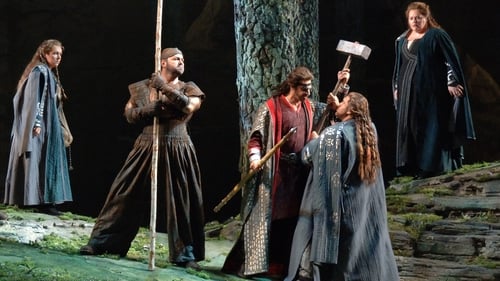
Writer
Robert Lepage’s landmark staging of Wagner’s Der Ring des Nibelungen, unveiled over the course of the 2010–11 and 2011–12 seasons, was the first new Met production of the complete cycle in more than 20 years. Combining state-of-the-art technology with traditional storytelling, it brings Wagner’s vision into the 21st century. In this first part of the epic, the theft of the Rhinegold treasure sets in motion the course of events that will change the world and end the rule of the gods. Met Music Director James Levine conducts a cast of some of the greatest Wagnerian singers of our time, including Bryn Terfel as Wotan, Stephanie Blythe as Fricka, and Eric Owens as Alberich.

Original Music Composer
Robert Lepage’s landmark staging of Wagner’s Der Ring des Nibelungen, unveiled over the course of the 2010–11 and 2011–12 seasons, was the first new Met production of the complete cycle in more than 20 years. Combining state-of-the-art technology with traditional storytelling, it brings Wagner’s vision into the 21st century. In this first part of the epic, the theft of the Rhinegold treasure sets in motion the course of events that will change the world and end the rule of the gods. Met Music Director James Levine conducts a cast of some of the greatest Wagnerian singers of our time, including Bryn Terfel as Wotan, Stephanie Blythe as Fricka, and Eric Owens as Alberich.

Original Music Composer
A Romantic Opera in three acts recorded live at The Amsterdam Music Theatre.

Writer
In the words of the prestigious German weekly 'Die Zeit,' the stage production of Wagner's 'Rheingold' and 'Walküre' by La Fura dels Baus 'quite possibly shows us the path that musical theater will be taking in the future.' There's no doubt about it: the Catalan city of Valencia is setting new accents in 21st-century opera not only with its spectacular new theater designed by Santiago Calatrava, but also with its visually transfixing production of Wagner's 'Ring' staged by Carlus Padrissa and his theater group La Fura dels Baus.

Original Music Composer
In the words of the prestigious German weekly 'Die Zeit,' the stage production of Wagner's 'Rheingold' and 'Walküre' by La Fura dels Baus 'quite possibly shows us the path that musical theater will be taking in the future.' There's no doubt about it: the Catalan city of Valencia is setting new accents in 21st-century opera not only with its spectacular new theater designed by Santiago Calatrava, but also with its visually transfixing production of Wagner's 'Ring' staged by Carlus Padrissa and his theater group La Fura dels Baus.

Original Music Composer

Writer
The Bayreuth Festival mounted this 2009 production of Richard Wagner's 1865 opera Tristan und Isolde, with Michael Beyer directing. It stars Robert Dean Smith as Tristan, Iréne Theorin as Isolde, Michelle Breedt as Brangäne and Robert Holl as King Marke. The Bayreuth Festival Orchestra and Chorus lend musical accompaniment, under the baton of Peter Schneider, while Anna Viebrock designed the costumes and the sets; Cristoph Marthaler produced. The production at hand opened the 2009 Bayreuth Festival.

Writer
This program captures a live performance of the Richard Wagner opera Die Meistersinger von Nurnberg, recorded at the Bayreuth Festival in Germany, under the direction of Katharina Wagner. Some of the vocalists featured in the performance include Franz Hawlata, Artur Korn, Michael Volle, and others.

Writer
Simon Rattle conducts the Berliner Philharmoniker in Stepháne Braunschweig's production of Richard Wagner's Die Walküre. A Festival d'Aix-en-Provence 2007 production, in coproduction with Osterfestspiele Salzburg. Directed for HDTV and video by Don Kent.

Music
Simon Rattle conducts the Berliner Philharmoniker in Stepháne Braunschweig's production of Richard Wagner's Die Walküre. A Festival d'Aix-en-Provence 2007 production, in coproduction with Osterfestspiele Salzburg. Directed for HDTV and video by Don Kent.

Writer
Richard Wagner's opera Lohengrin staged in 1987 by Werner Herzog in Bayreuth.

Music
Richard Wagner's opera Lohengrin staged in 1987 by Werner Herzog in Bayreuth.
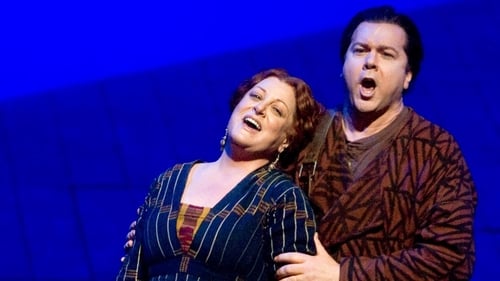
Writer
James Levine’s love for this monumental opera shimmers throughout this exciting performance. It was an afternoon to remember: Met favorite Deborah Voigt singing her first run as the proud Irish princess opposite tenor Robert Dean Smith—making an astonishing Met debut in front of a live worldwide movie-theater audience. Michelle DeYoung was a sisterly Brangäne and Matti Salminen an imposing King Marke.

Original Music Composer
James Levine’s love for this monumental opera shimmers throughout this exciting performance. It was an afternoon to remember: Met favorite Deborah Voigt singing her first run as the proud Irish princess opposite tenor Robert Dean Smith—making an astonishing Met debut in front of a live worldwide movie-theater audience. Michelle DeYoung was a sisterly Brangäne and Matti Salminen an imposing King Marke.

Writer
A classic production from the Bayreuth Festival is made available here for the first time on DVD! Staged and directed by Richard Wagner’s grandson Wolfgang Wagner at the Bayreuther Festspiele in 1999, this production of Wagner’s only comic opera features an all-star cast and the Bayreuther Festspiele chorus and orchestra under the direction of Daniel Barenboim.

Writer
The legendary Patrice Chéreau (Bayreuth Jahrhundertring, Queen Margot, Intimacy) directed this production of Richard Wagner's psychological music drama Tristan und Isolde at the Teatro alla Scala in 2007. It stars Ian Storey, Waltraud Meier, Matti Salminen, Gerd Grochowski and Michelle DeYoung; the Orchestra and Chorus of the Teatro Alla Scala provide musical support, under the baton of Daniel Barenboim.

Original Music Composer
The legendary Patrice Chéreau (Bayreuth Jahrhundertring, Queen Margot, Intimacy) directed this production of Richard Wagner's psychological music drama Tristan und Isolde at the Teatro alla Scala in 2007. It stars Ian Storey, Waltraud Meier, Matti Salminen, Gerd Grochowski and Michelle DeYoung; the Orchestra and Chorus of the Teatro Alla Scala provide musical support, under the baton of Daniel Barenboim.

Music
Ballet en deux actes et treize tableaux du chorég. This is a live recording of a performance at Paris Garnier in 2007. Petit's earlier production for the Ballet de Marseille used more realistic stage sets, but the current Paris version has minimal stage sets. Also, the costumes were redesigned. Roland Petit created a ballet based on "In Search of Lost Time" for the Ballet de Marseille in the 1970s. Petit's intention was not to make a faithful adaptation of the novel, but to capture its flavour and convey, through a number of selected scenes, the narrator's incessant fluctuations between happiness and torment. The highlights are the series of poetical pas de deux.

Original Music Composer
Wolfgang Wagner's Bayreuth production of his grandfather's 'farewell to the world'has 'an unusual beauty and logic of its own ... with a double stress - on nature undefiled and on a form of religious symbolism ... There is an air of magic and mystery about the staging ... The performance was excellent ... Horst Stein conducted a beautifully proportioned Parsifal'. New York Times

Music
As viewed and filmed in High Definition by astronauts on the space shuttle, this is the Planet Earth as few have seen before. One hour of High Definition visual space scenery, coupled with eight separate one hour soundtracks of the world's most treasured clasical music in Dolby Digital Surround Sound. Choose your favorite classics for this High Definition trip around the world - complete classical music collection on one disc. Classical Masters featuring Wagner, Pachelbel, Ravel, Strauss, Beethoven,Handel, Debussy, Marcello, Satie, Mozart, Vivaldi/Mendelssohn, Bach, Rossini, Dvorak, Brahms, Chopin, Tchaikovsky, and other great composers.

Writer
Day 3 of the Ring Cycle. DVD release June 2009.

Original Music Composer
Day 3 of the Ring Cycle. DVD release June 2009.

Writer
Day 2 of the Ring Cycle. DVD release June 2009.

Original Music Composer
Day 2 of the Ring Cycle. DVD release June 2009.

Writer
Die Walküre (The Valkyrie), WWV 86B, is an opera in three acts by Richard Wagner with a German libretto by the composer. It is the second of the four operas that form Wagner's cycle Der Ring des Nibelungen (The Ring of the Nibelung). The story of the opera is based on the Norse mythology told in the Volsunga Saga and the Poetic Edda.[1][2] In Norse mythology, a valkyrie is one in a group of female figures who decide which soldiers die in battle and which live. Die Walküre's best-known excerpt is the "Ride of the Valkyries". DVD release June 2009.

Original Music Composer
Die Walküre (The Valkyrie), WWV 86B, is an opera in three acts by Richard Wagner with a German libretto by the composer. It is the second of the four operas that form Wagner's cycle Der Ring des Nibelungen (The Ring of the Nibelung). The story of the opera is based on the Norse mythology told in the Volsunga Saga and the Poetic Edda.[1][2] In Norse mythology, a valkyrie is one in a group of female figures who decide which soldiers die in battle and which live. Die Walküre's best-known excerpt is the "Ride of the Valkyries". DVD release June 2009.

Writer
Prologue to Ring Cycle. DVD release June 2009.

Original Music Composer
Prologue to Ring Cycle. DVD release June 2009.

Writer
At the Festspielhaus Baden-Baden, the stage director Nikolaus Lehnhoff signs a remarkable production of Wagner's LOHENGRIN, the third of the German composer's main operas. This production stars an incredible cast, including Hans-Peter König, Klaus Florian Vogt, Solveig Kringelborn, Tom Fox and Waltraud Meier, accompanied by the Deutsches Symphonie-Orchester Berlin under Kent Nagano's baton.

Writer
Recorded live at the Festspielhaus, Baden-Baden, Germany, August 2004. Kent Nagano, conductor. Nikolaus Lehnhoff, stage director.

Music
Recorded live at the Festspielhaus, Baden-Baden, Germany, August 2004. Kent Nagano, conductor. Nikolaus Lehnhoff, stage director.

Writer
Music & Musicals, Opera & Operetta, Classical Music - Witness the Zurich Opera's stunning production of Richard Wagner's masterpiece "Tannhauser," conducted by Franz Welser-Most and featuring Peter Sieffert (Tannhauser), Solveig Kringelborn (Elisabeth) and Thomas Hampson (von Eschenbach). Initially produced in Dresden in 1845, "Tannhauser" instilled a sense of wonder in a few of Strauss's ardent friends and admirers, among them Robert Schumann and Franz Liszt. Opera buffs will love it.

Original Music Composer
Music & Musicals, Opera & Operetta, Classical Music - Witness the Zurich Opera's stunning production of Richard Wagner's masterpiece "Tannhauser," conducted by Franz Welser-Most and featuring Peter Sieffert (Tannhauser), Solveig Kringelborn (Elisabeth) and Thomas Hampson (von Eschenbach). Initially produced in Dresden in 1845, "Tannhauser" instilled a sense of wonder in a few of Strauss's ardent friends and admirers, among them Robert Schumann and Franz Liszt. Opera buffs will love it.

Original Music Composer
Part of Stuttgart Ring Cycle 2002/2003 - Third day.

Writer
Part of Stuttgart Ring Cycle 2002/2003 - Third day.

Original Music Composer
Part of Stuttgart Ring Cycle 2002/2003 - First Day

Writer
Part of Stuttgart Ring Cycle 2002/2003 - First Day

Original Music Composer
Part of Stuttgart Ring Cycle 2002/2003 - Second day.

Writer
Part of Stuttgart Ring Cycle 2002/2003 - Second day.

Original Music Composer
Part of Stuttgart Ring Cycle 2002/2003 - Prologue

Writer
Part of Stuttgart Ring Cycle 2002/2003 - Prologue

Writer
James Morris leads an all-star cast including Karita Mattila, Ben Heppner, Thomas Allen and René Pape, in this production of Wagner's comic opera, recorded live at New York's Metropolitan Opera in 2001. James Levine conducts.

Writer
A romantic opera in three acts with music and libretto by Richard Wagner, performed by the Orchestra of the Teatro di San Carlo. The original title, Tannhauser und der Sangerkrieg auf Wartburg, reveals the real nature of the opera, born by a fusion of two traditional sagas and dedicated to the dualism of spirituality and sensuality and the possibility of redemption through love. Composed between 1843 and 1845, Tannhauser has a tormented musical theme, made up of constant variations. It debuted in Dresden in 1845 when Wagner was just over 30.

Music
A romantic opera in three acts with music and libretto by Richard Wagner, performed by the Orchestra of the Teatro di San Carlo. The original title, Tannhauser und der Sangerkrieg auf Wartburg, reveals the real nature of the opera, born by a fusion of two traditional sagas and dedicated to the dualism of spirituality and sensuality and the possibility of redemption through love. Composed between 1843 and 1845, Tannhauser has a tormented musical theme, made up of constant variations. It debuted in Dresden in 1845 when Wagner was just over 30.

Original Music Composer
Inspired by Wagner’s own tortured affair with the wife of his patron, this searing masterwork is based on Arthurian legend and tells of an illicit romance between a Breton nobleman and the Irish princess betrothed to his uncle and king. The composer’s larger-than-life sensibilities are on full display throughout the score: Along with intoxicating orchestral music that surges in tandem with the couple’s burgeoning passion and a chord left symbolically unresolved until the last moments of the opera, the opera also features one of the repertory’s most soaring and ecstatic final climaxes, as Isolde surrenders to a love so powerful that she transcends life itself.

Writer
Richard Wagner's operatic retelling of the story of the search for the Holy Grail receives a lavish production in this video, which records performances held in Bayreuth, St. Petersburg, and Ravello, Italy. Internationally renowned tenor Placido Domingo leads the distinguished cast; Tony Palmer directs.

Original Music Composer
The Bayreuth Festival Opera House mounted this production of Richard Wagner's 1865 opera Tristan und Isolde as part of the Bayreuther Festspiele. Staged by Heiner Müller, it stars Siegfried Jerusalem, Waltraud Meier, Poul Elming and Uta Priew, and features musical accompaniment by The Orchestra and Chorus of the Bayreuther Festspiele.

Writer
The Bayreuth Festival Opera House mounted this production of Richard Wagner's 1865 opera Tristan und Isolde as part of the Bayreuther Festspiele. Staged by Heiner Müller, it stars Siegfried Jerusalem, Waltraud Meier, Poul Elming and Uta Priew, and features musical accompaniment by The Orchestra and Chorus of the Bayreuther Festspiele.

Writer

Original Music Composer

Writer
Wagner's erotic opera in a production by the German Opera of Berlin under the direction of Gotz Friedrich, with music conducted by Jiri Kout. Recorded at the Deutsche Oper Berlin.
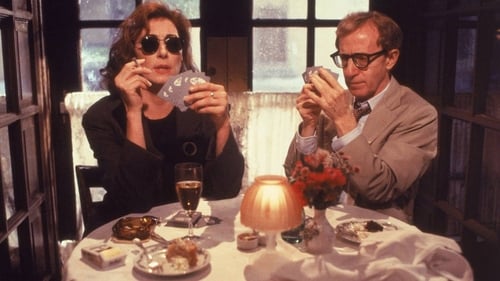
Music
Carol Lipton (Diane Keaton), una aburrida ama de casa de Manhattan, empieza a sospechar que su vecino Paul House (Jerry Adler), un hombre de avanzada edad, ha asesinado a su mujer, aunque, aparentemente, haya muerto a causa de un infarto. Su marido (Woody Allen) la tacha de paranoica y trata de quitarle de la cabeza esa descabellada idea; pero Carol se empeña en investigar a su vecino y empienza a seguirlo con la ayuda de su amigo Ted (Alan Alda), que siempre se ha sentido atraído por ella. Larry, espoleado por los celos y por una seductora escritora (Anjelica Huston), también interesada en el caso, se une de mala gana a la investigación.
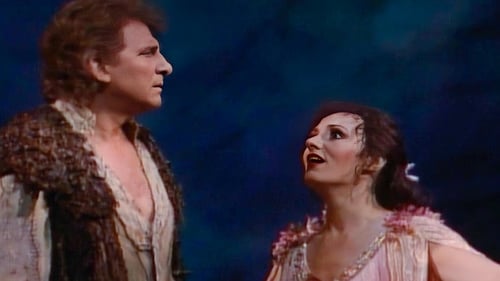
Writer
The Met production easily has the most beautiful staging, designed by Otto Schenck, who also produced the fabulous set for the Met's previous Ring cycle. Kurt Moll is a wonderful Gurnemanz, but compared to his studio recording under Karajan a decade earlier it has lost some of its original velvety body and luster. As Parsifal, Jerusalem is starting to show some wear and tear on his voice at the Met in 1992 as opposed to his prime form at Bayreuth in 1981, but is still quite good; only Placido Domingo could compete with him in the role at that time.

Original Music Composer
The Met production easily has the most beautiful staging, designed by Otto Schenck, who also produced the fabulous set for the Met's previous Ring cycle. Kurt Moll is a wonderful Gurnemanz, but compared to his studio recording under Karajan a decade earlier it has lost some of its original velvety body and luster. As Parsifal, Jerusalem is starting to show some wear and tear on his voice at the Met in 1992 as opposed to his prime form at Bayreuth in 1981, but is still quite good; only Placido Domingo could compete with him in the role at that time.

Original Music Composer
SECOND DAY OF THE RING CYCLE. Alberich's brother Mime raises the orphan Siegfried, hoping that Siegfried will kill Fafner and enable Mime to gain the ring. Mime attempts unsuccessfully to reforge the Nothung. Fulfilling prophecy, Siegfried reforges the sword himself and kills Fafner, who has the form of a dragon. When he accidentally tastes the dragon's blood spilt on his hands, Siegfried understands the song of a woodbird, who instructs him to take the Ring from Fafner. Reading Mime's thoughts of betrayal, Siegfried kills the dwarf as well. The woodbird also informs Siegfried of a mysterious woman asleep in the midst of fire, and Siegfried sets off to find her. After defeating a disguised Wotan and breaking his spear, Siegfried successfully awakes Brünnhilde, and the two fall in love. Filmed at the Bayreuth Festspielhaus in June & July 1992.

Writer
SECOND DAY OF THE RING CYCLE. Alberich's brother Mime raises the orphan Siegfried, hoping that Siegfried will kill Fafner and enable Mime to gain the ring. Mime attempts unsuccessfully to reforge the Nothung. Fulfilling prophecy, Siegfried reforges the sword himself and kills Fafner, who has the form of a dragon. When he accidentally tastes the dragon's blood spilt on his hands, Siegfried understands the song of a woodbird, who instructs him to take the Ring from Fafner. Reading Mime's thoughts of betrayal, Siegfried kills the dwarf as well. The woodbird also informs Siegfried of a mysterious woman asleep in the midst of fire, and Siegfried sets off to find her. After defeating a disguised Wotan and breaking his spear, Siegfried successfully awakes Brünnhilde, and the two fall in love. Filmed at the Bayreuth Festspielhaus in June & July 1992.

Original Music Composer
FIRST DAY OF THE RING CYCLE. Fleeing for his life, Siegmund seeks shelter at Sieglinde's house. Her husband Hunding happens to be one of Siegmund's pursuers, and the two of them must cross swords the next day. As Siegmund laments his lack of a weapon, Sieglinde directs him to the sword Nothung stuck in an ash tree. Despite discovering they are twin siblings, the two fall in love. The King of Gods Wotan, their father, sends his Valkyrie daughter Brünnhilde to aid Siegmund. Fricka protests, and Wotan uses his spear to break Siegmund's sword during the battle. Siegmund is slain, but Brünnhilde rescues both the sword fragments and Sieglinde who is pregnant with Siegmund's child Siegfried. Wotan is angry that she intervened, but since Brünnhilde is his favorite child, he merely strips her of immortality and sends her into an enchanted sleep, surrounded by fire. Filmed at the Bayreuth Festspielhaus in June & July 1992.

Writer
FIRST DAY OF THE RING CYCLE. Fleeing for his life, Siegmund seeks shelter at Sieglinde's house. Her husband Hunding happens to be one of Siegmund's pursuers, and the two of them must cross swords the next day. As Siegmund laments his lack of a weapon, Sieglinde directs him to the sword Nothung stuck in an ash tree. Despite discovering they are twin siblings, the two fall in love. The King of Gods Wotan, their father, sends his Valkyrie daughter Brünnhilde to aid Siegmund. Fricka protests, and Wotan uses his spear to break Siegmund's sword during the battle. Siegmund is slain, but Brünnhilde rescues both the sword fragments and Sieglinde who is pregnant with Siegmund's child Siegfried. Wotan is angry that she intervened, but since Brünnhilde is his favorite child, he merely strips her of immortality and sends her into an enchanted sleep, surrounded by fire. Filmed at the Bayreuth Festspielhaus in June & July 1992.

Original Music Composer
Adaptation of 'The Flying Dutchman', recorded at the Bavarian State Opera.

Original Music Composer
PRELIMINARY EVENINING OF THE RING CYCLE. Upon the banks of the ageless river Rhine, the Rhinemaidens play. Alberich, a Nibelung dwarf, tries vainly to seduce one of them. To taunt him, they reveal their secret: out of the gold they guard one can forge a Ring to rule the world, but at the cost of giving up Love forever. Alberich steals the gold, makes the ring and plans his world take-over. Meanwhile, Wotan, King of the Gods, must figure out how to finance the construction of Valhalla. He has promised his sister-in-law as payment to the giant construction workers led by Fafner, but his wife Fricka disapproves. Loge (God of Fire) tricks Alberich and brings him to Wotan, who takes the Ring. In revenge Alberich curses it: lack of the Ring will fuel desire for it and possession will only lead to misery. Wotan gives the Ring to Fafner as ransom for Fricka's sister. Filmed at the Bayreuth Festspielhaus in June & July 1991.

Writer
PRELIMINARY EVENINING OF THE RING CYCLE. Upon the banks of the ageless river Rhine, the Rhinemaidens play. Alberich, a Nibelung dwarf, tries vainly to seduce one of them. To taunt him, they reveal their secret: out of the gold they guard one can forge a Ring to rule the world, but at the cost of giving up Love forever. Alberich steals the gold, makes the ring and plans his world take-over. Meanwhile, Wotan, King of the Gods, must figure out how to finance the construction of Valhalla. He has promised his sister-in-law as payment to the giant construction workers led by Fafner, but his wife Fricka disapproves. Loge (God of Fire) tricks Alberich and brings him to Wotan, who takes the Ring. In revenge Alberich curses it: lack of the Ring will fuel desire for it and possession will only lead to misery. Wotan gives the Ring to Fafner as ransom for Fricka's sister. Filmed at the Bayreuth Festspielhaus in June & July 1991.

Original Music Composer
THIRD DAY OF THE RING CYCLE. Günter, the lord of the Rhine people, gives Siegfried a love potion that causes Siegfried to forget Brünnhilde and fall in love with Günter's sister Gutrane. Siegfried has given Brünnhilde the Ring as a token of their love, but her Valkyrie sister urges her to destroy it, because their father Wotan has lost his spear and power and is hiding out in Valhalla. Instead, Brünnhilde keeps it, and under the influence of the potion, Siegfried steals it from her. Enraged, Brünnhilde helps Alberich's son murder Siegfried, but Siegfried's memory returns, and he dies thinking of Brünnhilde. Brünnhilde repents and orders a funeral pyre to be built. She rides into the fire herself, and the Rhinemaidens get the ring back. The story closes with flames flickering about Valhalla in the background. Filmed at the Bayreuth Festspielhaus in June & July 1991.

Writer
THIRD DAY OF THE RING CYCLE. Günter, the lord of the Rhine people, gives Siegfried a love potion that causes Siegfried to forget Brünnhilde and fall in love with Günter's sister Gutrane. Siegfried has given Brünnhilde the Ring as a token of their love, but her Valkyrie sister urges her to destroy it, because their father Wotan has lost his spear and power and is hiding out in Valhalla. Instead, Brünnhilde keeps it, and under the influence of the potion, Siegfried steals it from her. Enraged, Brünnhilde helps Alberich's son murder Siegfried, but Siegfried's memory returns, and he dies thinking of Brünnhilde. Brünnhilde repents and orders a funeral pyre to be built. She rides into the fire herself, and the Rhinemaidens get the ring back. The story closes with flames flickering about Valhalla in the background. Filmed at the Bayreuth Festspielhaus in June & July 1991.

Music
Werner Herzog recreates the primitive 10th century northern-European setting of Lohengrin.

Writer
The stupendous climax to Wagner’s four-part Ring cycle is brilliantly realized by the Otto Schenk/Günther Schneider-Siemssen production and byJames Levine’s monumental conducting. The Met orchestra, chorus, and an all-star cast make this Götterdämmerung one that truly rises to the occasion. Hildegard Behrens’s Brünnhilde must be experienced to be believed, as does Matti Salminen’s richly sung, domineering Hagen. At the center of the drama is Siegfried Jerusalem as Siegfried, who does not realize he has been drawn into a plot of betrayal until it is too late. Christa Ludwig is magnetic as Waltraute and Ekkehard Wlaschiha is a compelling Alberich.

Original Music Composer
The stupendous climax to Wagner’s four-part Ring cycle is brilliantly realized by the Otto Schenk/Günther Schneider-Siemssen production and byJames Levine’s monumental conducting. The Met orchestra, chorus, and an all-star cast make this Götterdämmerung one that truly rises to the occasion. Hildegard Behrens’s Brünnhilde must be experienced to be believed, as does Matti Salminen’s richly sung, domineering Hagen. At the center of the drama is Siegfried Jerusalem as Siegfried, who does not realize he has been drawn into a plot of betrayal until it is too late. Christa Ludwig is magnetic as Waltraute and Ekkehard Wlaschiha is a compelling Alberich.

Original Music Composer
From the gorgeous scene deep in the river Rhine that opens the opera, up to the magic Rainbow Bridge that appears at the end, leading to a glistening Valhalla, Otto Schenk’s production captures the scenic world of Wagner’s Ring as brilliantly as James Levine and the Met orchestra capture the musical world. The cast is incomporable: an astounding James Morris as the young god Wotan, the great Christa Ludwig as his wife Fricka, incandescent Siegfried Jerusalem as Loge, the wily god of fire, and Ekkehard Wlaschiha as a complex Alberich.

Writer
From the gorgeous scene deep in the river Rhine that opens the opera, up to the magic Rainbow Bridge that appears at the end, leading to a glistening Valhalla, Otto Schenk’s production captures the scenic world of Wagner’s Ring as brilliantly as James Levine and the Met orchestra capture the musical world. The cast is incomporable: an astounding James Morris as the young god Wotan, the great Christa Ludwig as his wife Fricka, incandescent Siegfried Jerusalem as Loge, the wily god of fire, and Ekkehard Wlaschiha as a complex Alberich.

Writer
Siegfried is the third of the four operas that constitute Der Ring des Nibelungen (The Ring of the Nibelung), by Richard Wagner.

Original Music Composer
Siegfried is the third of the four operas that constitute Der Ring des Nibelungen (The Ring of the Nibelung), by Richard Wagner.
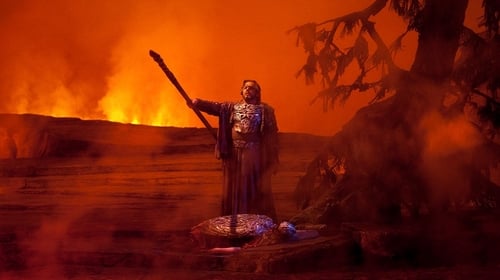
Writer
The gorgeous and evocative Otto Schenk/Günther Schneider-Siemssen production continues with this second opera in Wagner’s Ring cycle. Hildegard Behrens brings deep empathy to Brünnhilde, the favorite daughter of the god Wotan (James Morris) who nevertheless defies him. Morris’s portrayal of Wotan is deservedly legendary, as is Christa Ludwig, as Fricka. Jessye Norman and Gary Lakes are Sieglinde and Siegmund, and Kurt Moll is the threatening Hunding. James Levine and the Met orchestra provide astonishing color and drama. (Performed April 8, 1989)

Original Music Composer
The gorgeous and evocative Otto Schenk/Günther Schneider-Siemssen production continues with this second opera in Wagner’s Ring cycle. Hildegard Behrens brings deep empathy to Brünnhilde, the favorite daughter of the god Wotan (James Morris) who nevertheless defies him. Morris’s portrayal of Wotan is deservedly legendary, as is Christa Ludwig, as Fricka. Jessye Norman and Gary Lakes are Sieglinde and Siegmund, and Kurt Moll is the threatening Hunding. James Levine and the Met orchestra provide astonishing color and drama. (Performed April 8, 1989)

Original Music Composer
Lohengrin is a romantic opera in three acts composed and written by Richard Wagner.

Writer
Lohengrin is a romantic opera in three acts composed and written by Richard Wagner.

Music
The adaption of Arthur Schnitzler's brilliant study of the moral illusion and reality in a small town near Vienna at the end of the century. - After the famous radio adaption by Max Ophüls in 1954.

Music
Michael Hampe’s acclaimed production of Wagner’s comic opera tells a charming, human, romantic love story. And yet, at the same time, registers his protest against the narrow-minded critics and the prejudiced public who for so long refused him recognition.

Writer
Michael Hampe’s acclaimed production of Wagner’s comic opera tells a charming, human, romantic love story. And yet, at the same time, registers his protest against the narrow-minded critics and the prejudiced public who for so long refused him recognition.

Music
Documental dedicado a la vida y obra del cineasta aragonés Luis Buñuel. Episodio del programa televisivo "La memoria fértil".
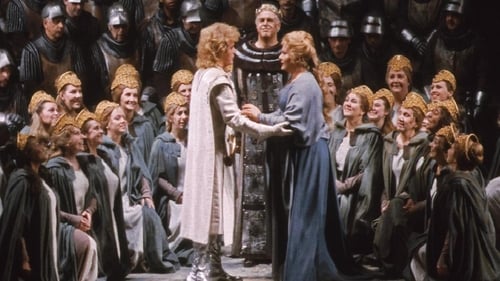
Writer
Wagner’s Romantic opera demands singing actors who can truly inhabit their parts, and that’s just what we have here. Is it possible for a Knight of the Holy Grail to look more enticing than Peter Hofmann? No wonder Elsa (Eva Marton) falls in love at first sight. Marton’s heroine is innocent, but she is also a passionate, real-life young woman—which is good, because Leonie Rysanek is positively demented as Ortrud, the sorceress who accuses Elsa and Lohengrin of using magic. With James Levine’s superb conducting, the orchestra and chorus are similarly magical.

Original Music Composer
Wagner’s Romantic opera demands singing actors who can truly inhabit their parts, and that’s just what we have here. Is it possible for a Knight of the Holy Grail to look more enticing than Peter Hofmann? No wonder Elsa (Eva Marton) falls in love at first sight. Marton’s heroine is innocent, but she is also a passionate, real-life young woman—which is good, because Leonie Rysanek is positively demented as Ortrud, the sorceress who accuses Elsa and Lohengrin of using magic. With James Levine’s superb conducting, the orchestra and chorus are similarly magical.

Writer

Original Music Composer

Music
A samurai warrior is terrorised by the demon Agi.

Original Music Composer
Take a perfect cast, a great conductor and a groundbreaking staging in-out makes a 'Tristan' for eternity. The 1983 performance in Bayreuth was a great moment for the world of opera. The ensemble performance of René Kollo, Johanna Meier and Matti Salminen with, then as now the Wagner admirer, Daniel Barenboim conducting the Bayreuth orchestra inspired singers and instrumentalists to peak performance. Jean-Pierre Ponnelle created a dream-beautiful stage.

Writer
Take a perfect cast, a great conductor and a groundbreaking staging in-out makes a 'Tristan' for eternity. The 1983 performance in Bayreuth was a great moment for the world of opera. The ensemble performance of René Kollo, Johanna Meier and Matti Salminen with, then as now the Wagner admirer, Daniel Barenboim conducting the Bayreuth orchestra inspired singers and instrumentalists to peak performance. Jean-Pierre Ponnelle created a dream-beautiful stage.
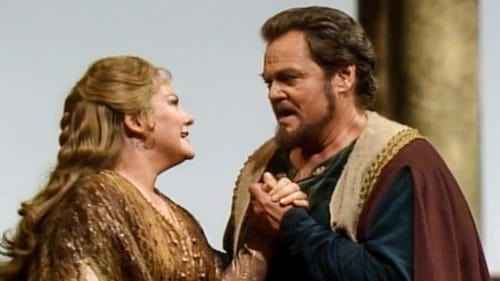
Original Music Composer
As renowned for its harmonious overture as for its romantic storybook characters, this three-act masterwork features some of the composer’s most groundbreaking and unforgettable music, as well as a theme the young Wagner would revisit again and again later in his career—the redemptive and transcendent power of a woman’s love. The enchanting plot harks back to medieval history: Wolfram is a lovesick troubadour who desires the virtuous Elisabeth. She, however, has eyes for another: the rebellious knight Tannhäuser, who in turn cannot get over an overwhelming sensual experience in the realm of the goddess Venus, and is banished for singing her praises at court. Only saintly Elisabeth’s death can atone for his misdeeds.

Writer
As renowned for its harmonious overture as for its romantic storybook characters, this three-act masterwork features some of the composer’s most groundbreaking and unforgettable music, as well as a theme the young Wagner would revisit again and again later in his career—the redemptive and transcendent power of a woman’s love. The enchanting plot harks back to medieval history: Wolfram is a lovesick troubadour who desires the virtuous Elisabeth. She, however, has eyes for another: the rebellious knight Tannhäuser, who in turn cannot get over an overwhelming sensual experience in the realm of the goddess Venus, and is banished for singing her praises at court. Only saintly Elisabeth’s death can atone for his misdeeds.

Music
Based on Shirley Jackson's eerie short story The Summer People.

Writer
A psychological interpretation of the opera mixing in references to the history of Germany, Wagner's life, German literature and philosophy. The action is centered around Wagner's death mask. Kundry is the main character - one might read the film as the story of her redemption rather than that of Amfortas.

Original Music Composer
A psychological interpretation of the opera mixing in references to the history of Germany, Wagner's life, German literature and philosophy. The action is centered around Wagner's death mask. Kundry is the main character - one might read the film as the story of her redemption rather than that of Amfortas.

Original Music Composer
The second part of Patrice Chérau's epoch-making Bayreuth Ring is a radical re-imagining of Die Walküre, unprecedented in its psychological penetration. This production of " Die Walkure," staged as part of Patrice Chereau's Centenary celebration marking the 100th anniversary of the completion of the "Ring," this lavish performance features Donald McIntyre as Wotan, Peter Hofmann as Siegmund, and Gweneth Jones as Brunnhilde; Pierre Boulez conducts the Orchester Der Bayreuther Festspiel.

Original Music Composer
The third opera in Richard Wagner's epic Ring cycle, Siegfried follows the adventures of the son of demigods Siegmund and Sieglinde as he conquers his enemies and rescues the beauteous Brunnhilde with the help of his magic sword. This video preserves the controversial 1976 Bayreuth Centenary production, with Pierre Boulez leading the Bayreuth Festival Orchestra. Manfred Jung leads the cast as Siegfried, with Gwyneth Jones as Brunnhilde, Donald McIntyre as the Wanderer, and Hermann Becht as Alberich.

Original Music Composer
Götterdämmerung, the fourth of Richard Wagner's four Ring operas. The cast features Manfred Jung as Siegfried and Gwyneth Jones as Brünnhilde, with music provided by Bayreuther Festspiele Orchester conducted by Pierre Boulez. This title is available in a boxed set with the other Ring operas, Das Rheingold, Die Walküre, and Siegfried.

Original Music Composer
This is a beautifully conducted and thoughtfully staged performance of the first opera (the prologue) in Wagner's Ring Cycle. As soon as the clouds of mist have dissipated, while the daring, long-held opening chord is still reverberating, the screen clears to show not only the River Rhine and the three maidens (dressed like prostitutes in this production) assigned to guard the gold hidden there. It also shows an enormous dam (not mentioned in Wagner's text). This is the underwater base of a hydroelectric plant, and its presence tells us two things immediately: that this production takes the story out of the vaguely medieval fantasy world in which Wagner had placed it, and that a basic theme of the four-opera cycle would be power. Alberich, the Nibelung, is willing to renounce the love of women, after stealing the gold from the Rhine, to become the ruler of the world. Another basic theme is greed.

Writer
Götterdämmerung, the fourth of Richard Wagner's four Ring operas. The cast features Manfred Jung as Siegfried and Gwyneth Jones as Brünnhilde, with music provided by Bayreuther Festspiele Orchester conducted by Pierre Boulez. This title is available in a boxed set with the other Ring operas, Das Rheingold, Die Walküre, and Siegfried.

Writer
The third opera in Richard Wagner's epic Ring cycle, Siegfried follows the adventures of the son of demigods Siegmund and Sieglinde as he conquers his enemies and rescues the beauteous Brunnhilde with the help of his magic sword. This video preserves the controversial 1976 Bayreuth Centenary production, with Pierre Boulez leading the Bayreuth Festival Orchestra. Manfred Jung leads the cast as Siegfried, with Gwyneth Jones as Brunnhilde, Donald McIntyre as the Wanderer, and Hermann Becht as Alberich.

Writer
The second part of Patrice Chérau's epoch-making Bayreuth Ring is a radical re-imagining of Die Walküre, unprecedented in its psychological penetration. This production of " Die Walkure," staged as part of Patrice Chereau's Centenary celebration marking the 100th anniversary of the completion of the "Ring," this lavish performance features Donald McIntyre as Wotan, Peter Hofmann as Siegmund, and Gweneth Jones as Brunnhilde; Pierre Boulez conducts the Orchester Der Bayreuther Festspiel.

Writer
This is a beautifully conducted and thoughtfully staged performance of the first opera (the prologue) in Wagner's Ring Cycle. As soon as the clouds of mist have dissipated, while the daring, long-held opening chord is still reverberating, the screen clears to show not only the River Rhine and the three maidens (dressed like prostitutes in this production) assigned to guard the gold hidden there. It also shows an enormous dam (not mentioned in Wagner's text). This is the underwater base of a hydroelectric plant, and its presence tells us two things immediately: that this production takes the story out of the vaguely medieval fantasy world in which Wagner had placed it, and that a basic theme of the four-opera cycle would be power. Alberich, the Nibelung, is willing to renounce the love of women, after stealing the gold from the Rhine, to become the ruler of the world. Another basic theme is greed.
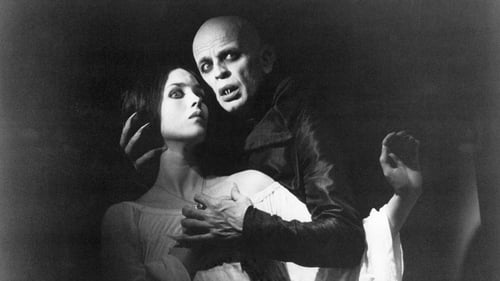
Music
Adaptación de la mítica novela de Bram Stoker que toma como punto de referencia la insuperable adaptación de Murnau. Jonathan Harker viaja desde Wismar a Transilvania, al castillo del legendario conde Drácula, con el fin de venderle una mansión en su ciudad. Atraído por una fotografía de Lucy, la mujer de Harker, Nosferatu parte inmediatamente hacia Wismar, llevando con él muerte y el horror.

Writer
TANNHÄUSER UND DER SÄNGERKRIEG AUF WARTBURG is a grand opera by Richard Wagner in three acts. After experiencing boundless sensuality and freedom with the fun-loving Venus (soprano), the singer Tannhäuser (Tenor) finds it impossible to conform to the cultured setting of his betrothed Elizabeth (soprano), who loves him. During a singing contest, Tannhäuser describes the affair with Venus as the ultimate love experience and because of that, he is cast out from the established society. Thanks to Elizabeth's intervention, he is allowed to undertake a pilgrimage to the Pope to ask for the Holy Father's pardon. If the Pope accepts to forgive him, he would be allowed to take back his place in society. Tannhäuser accepts. But fate will not allow him to meet with his beloved Elizabeth again in this life. This is a recording of the legendary staging by Götz Friedrich for the 1978 Bayreuth Festival conducted by Sir Colin Davis.

Original Music Composer
TANNHÄUSER UND DER SÄNGERKRIEG AUF WARTBURG is a grand opera by Richard Wagner in three acts. After experiencing boundless sensuality and freedom with the fun-loving Venus (soprano), the singer Tannhäuser (Tenor) finds it impossible to conform to the cultured setting of his betrothed Elizabeth (soprano), who loves him. During a singing contest, Tannhäuser describes the affair with Venus as the ultimate love experience and because of that, he is cast out from the established society. Thanks to Elizabeth's intervention, he is allowed to undertake a pilgrimage to the Pope to ask for the Holy Father's pardon. If the Pope accepts to forgive him, he would be allowed to take back his place in society. Tannhäuser accepts. But fate will not allow him to meet with his beloved Elizabeth again in this life. This is a recording of the legendary staging by Götz Friedrich for the 1978 Bayreuth Festival conducted by Sir Colin Davis.
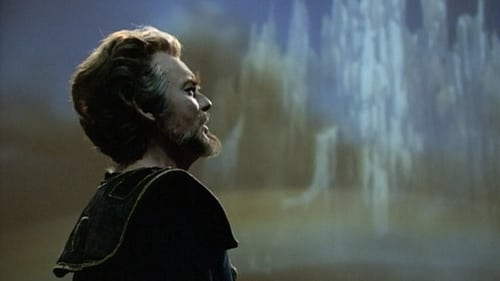
Writer
This 1978 studio production of the prologue to Wagner's masterpiece is the only segment of the famous Salzburg Festival/Metropolitan Opera productions, first seen in the 1960s, that made it to film. Based on one of those original productions, Georges Wakhevitch produced stage settings and transformations that supported Karajan's concept with every possible means. Herbert Von Karajan's staging is in the epic style of another age, emphasizing the dignity of the gods rather than their all too human failings. With the singers - foremost among them Peter Schreier - Karajan had an ensemble that fully conformed to his intentions.

Original Music Composer
This 1978 studio production of the prologue to Wagner's masterpiece is the only segment of the famous Salzburg Festival/Metropolitan Opera productions, first seen in the 1960s, that made it to film. Based on one of those original productions, Georges Wakhevitch produced stage settings and transformations that supported Karajan's concept with every possible means. Herbert Von Karajan's staging is in the epic style of another age, emphasizing the dignity of the gods rather than their all too human failings. With the singers - foremost among them Peter Schreier - Karajan had an ensemble that fully conformed to his intentions.

Original Music Composer
This vivid film of Wagner's romatic opera succeeds in conveying what has famously been called "the wind that blows out at you whenever you open the score", including Daland's boat anchoring against the Sandwike cliffs, the red-sailed phantom ship, and the ghost crew rising from the dead. "Scenes that recall classic horror films... Brilliantly successful" (Nürnberger Nachrichten), "Captures the works' essence" (Süddeutsche Zeitung). With a superb cast; conducted by Wagner authority Wolfgang Sawallisch.

Original Music Composer
Birgit Nilsson and Jon Vickers star in this filmed record of the Theatre Antique d'Orange's acclaimed 1973 production of Wagner's epic tale of doomed love in the Middle Ages. Tristan und Isolde also features the Orchestre National de R.T.F., under the direction of Karl Bohm.
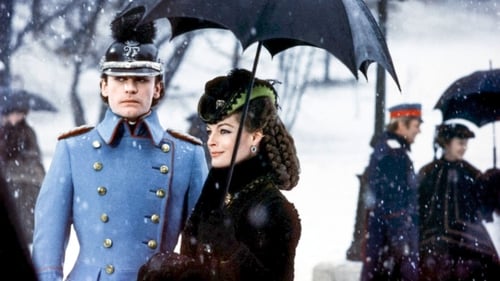
Music
En 1864, antes de cumplir los veinte años, Ludwig de Wittelsbach (Luis II, "el rey loco") ocupó el trono de Baviera. El joven rey era generoso y romántico y soñaba con traer la felicidad a su pueblo. Fue un gran mecenas que amaba el arte, la paz y la armonía universal. Sin embargo, por confiar en sus consejeros, llevó a Baviera a una desastrosa guerra que la dejaría en manos de Bismarck. Hasta sus más fieles colaboradores conspiraban contra él; lo traicionó incluso su principal protegido, Richard Wagner. Únicamente su prima Elizabeth ("Sissi"), la esposa del Emperador de Austria, que sentía por él un afecto casi maternal, le fue incondicionalmente fiel. Luchó toda su vida contra su homosexualidad.

Music
Película que gira en torno a la historia intelectual alemana de los últimos cien años. En este caso se centra en la figura de Luis II de Baviera. Primera parte de una trilogía a la que pertenecen las películas "Karl May" (1974) y "Hitler, una película sobre Alemania" (1977).

Music
Story about the love of Tristan and Isolde, wife of Tristan's uncle

Music
This portrait of the filmmaker's apartment, painted in the color of the title, was made a few months before his departure from New York. It is dedicated to the filmmaker Stan Brakhage and was shot without a scenario and edited entirely in the camera.

Music
A surrealistic adaptation of Wagner's opera.

Story
A surrealistic adaptation of Wagner's opera.

Music
Life and death of King Ludwig II of Bavaria.

Original Music Composer
The historic Toscanini television concerts with the NBC Symphony Orchestra. Broadcast #7 was of a concert on December 29, 1951 from Carnegie Hall, featuring music from Wagner's operas. (Concerts #6 and #7 were released as "Vol. 4" in the DVD series.)

Original Music Composer
Unos soldados que vagan entre ruinas, supervivientes de la Tercera Guerra Mundial, entran en los restos de un monasterio y comienzan a leer un libro sagrado, la leyenda del enfrentamiento entre Klingsor y Rodenco. (FILMAFFINITY)

Original Story
Unos soldados que vagan entre ruinas, supervivientes de la Tercera Guerra Mundial, entran en los restos de un monasterio y comienzan a leer un libro sagrado, la leyenda del enfrentamiento entre Klingsor y Rodenco. (FILMAFFINITY)

Original Music Composer
The historic Toscanini television concerts with the NBC Symphony Orchestra. Broadcast #3 was of a concert on December 4, 1948, at NBC Studio 8H, featuring Mozart's Symphony No. 40 in G minor K550; Dvorak's Symphonic Variations op78; and Wagner's Overture to Tannhäuser. (Concerts #3 and #4 were released on "Vol. 2" in the DVD series.)

Original Music Composer
The historic Toscanini television concerts with the NBC Symphony Orchestra. Broadcast #1 was of a concert on March 20, 1948, at NBC Studio 8H, featuring orchestral music from Wagner's operas. (Concerts #1 and #2 were released on "Vol. 1" in the DVD series.)

Poem
This is a documentary film on the romantic and decadent atmosphere of Venice at the end of the 18th century. A vigorous comment by Jean Cocteau tells us of the sick souls and the sorrows of literary characters and musicians who lived the dream of this city. It is the Venice of Lord Byron, Alfred de Musset, George Sand, d'Annunzio; a Venice made of precious images, palaces reflected in the water, mysterious moonlights, little squares where unhappy lovers wander under the music of Richard Wagner.

Music
An unusually intense and emotional day in the otherwise monotonous life of a woman.

Opera
Dramatic three-reel film based on Wagner's opera of chivalry and spiritual struggle. Wandering minstrel Tannhauser wins the heart of Elizabeth, niece of the powerful Landgrave. Later, under the spell of Venus and her nymphs, Tannhauser passes into Venusberg, a netherworld of earthly pleasures. Returning to the Landgrave's court, he praises Venus in song and sparks the righteous anger of all present. His own prayers and those of Elizabeth free him from enchantment and he takes up the habit of a monk, devoting himself to God. He sets off to seek absolution in Rome while Elizabeth waits at court, ever weakening in his absence.

Story
Dramatic three-reel film based on Wagner's opera of chivalry and spiritual struggle. Wandering minstrel Tannhauser wins the heart of Elizabeth, niece of the powerful Landgrave. Later, under the spell of Venus and her nymphs, Tannhauser passes into Venusberg, a netherworld of earthly pleasures. Returning to the Landgrave's court, he praises Venus in song and sparks the righteous anger of all present. His own prayers and those of Elizabeth free him from enchantment and he takes up the habit of a monk, devoting himself to God. He sets off to seek absolution in Rome while Elizabeth waits at court, ever weakening in his absence.

Original Music Composer
